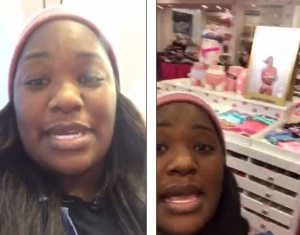Victoria’s Secret
Victoria’s Secret is a lingerie, apparel, and beauty store located in the United States that is renowned for its high-profile promotion and branding, which starts with a famous collection and culminates with an annual fashion show featuring supermodels known as Angels. The brand has suffered since 2016 as the largest manufacturer of lingerie in the United States, leading to changing market tastes and continuing debate around corporatization.
The company's five lingerie stores were sold to Leslie Wexner in 1982, after Roy and Gaye Raymond founded it in 1977. Wexner soon moved into American shopping centers, rising to 350 stores nationwide and $1 billion in revenue by the early 1990s, when Victoria's Secret became the country's biggest lingerie chain.
From 1995 to 2018, the Victoria's Secret Fashion Show, which featured an annual runway showcase of models advertised by the company as dream Angels, was an important part of the brand's image. The company's growth into shopping malls continued in the 1990s, with the launch of the wonder bra, the modern brand Body by Victoria, and the development of a line of fragrances and cosmetics. In 2002, Victoria's Secret revealed the launch of PINK, a brand targeted at teenagers. Victoria's Secret began expanding globally in 2008, with retail branches in international airports, franchises in big cities across the world, and company-owned shops around Canada and the United Kingdom.
By 2016, Victoria's Secret's market share had begun to dwindle, giving way to a growing audience demand for athleisure. In 2016, the company discontinued the distribution of their well-known collection. Following persistent backlash and uproar about the unsavory activities and industry policies of corporate leadership under Wexner and Ed Razek, the company failed to retain its market share.Victoria's Secret remained the largest lingerie store in the United States as of May 2020, with over 1,070 outlets. Following the COVID-19 pandemic, parent company L Brands announced the closing of 250 Victoria's Secret and Pink stores in 2020, a roughly 25% drop in total retail outlets.[1]
The Controversy
2010 In 2010, Victoria's Secret introduced a segment called "Wild Things" in 2010. Animal-print lingerie was worn by models, including Emanuela De Paulo, who was accompanied by men clad in printed sarongs and wrap skirts. Many of the models, both male and female, were wrapped in black curves, circles, and other designs intended to imitate indigenous people's body art.[2]
In 2016, a woman named Kimberly Houzah posted a video on Facebook claiming that she and another black woman were ordered to leave the store by someone she mistook for a boss after one black woman was found shoplifting at the store in Alabama.According to Houzah's footage, the incident began on Wednesday at the Quintard Mall in Oxford, when a third African-American woman was reportedly accused of shoplifting. According to Houzah, the manager then informed her and another black woman that they had to leave the shop.
Due to racist prejudices, this video sparked uproar in society.
The Apology
Victoria's Secret said on Facebook, "We take our customer's experience at the Quintard Mall very seriously and have reached out to her personally to share our heartfelt apologies." "What occurred at our shop should not have occurred, and it does not represent who we are or what we stand for." The store associate who was involved in this incident has since left the organization. Victoria's Secret is passionate in treating all consumers with honesty and respect at all times, regardless of race." CNN attempted to contact Victoria's Secret for comment about how the employee left the firm but received no response.[3]
References
- ↑ Victoria’s Secret. Retrieved December 25, 2020.
- ↑ Matera, Avery. 5 Times Victoria’s Secret Was Accused of Cultural Appropriation, Teen Vogue, 7 November 2018. Retrieved December 25, 2020.
- ↑ Almasy, Steve. Victoria's Secret apologizes to customer who says she was racially profiled, cnn.com, 9 December 2016. Retrieved December 25, 2020.


